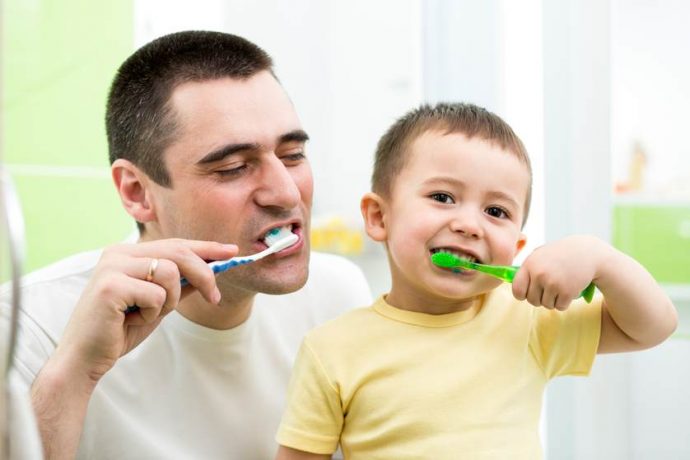To ensure your child’s smile lasts a lifetime, it’s important to instill good dental hygiene habits in them from a very young age. But it’s not always easy to get children to adopt a new habit; especially a habit they may consider a chore. The following article offers three suggestions for teaching children proper dental hygiene habits.
Regular Visits To A Pediatric Dentist
A pediatric dentist can be an invaluable asset when it comes to teaching your child proper dental hygiene habits. A pediatric dentist is required to take an additional two years of training after receiving their Doctor of Dental Surgery (DDS) degree. During this time, they learn about the special oral and dental needs of children from infancy through adolescence.
Because a pediatric dentist understands how a child’s dental needs differ from that of an adult’s, they are better equipped to teach children healthy habits that will last a lifetime. They can explain the importance of good dental hygiene to children in a non-confrontational manner that they can understand, and show them how brushing and flossing can be made fun.
Regular trips to a pediatric dentist will also help your child feel more at ease about going to the dentist, and will encourage continued good habits so they receive positive check-ups. Most dentists recommend children start regular appointments around their first birthday, and begin brushing around age 2 or 3.
Make It Fun
When you’ve got to do it twice a day… every day… brushing can sometimes seem like a chore. And flossing certainly isn’t a walk in the park either; especially for young children. To establish good habits and make these tasks seem less onerous, make it fun!
Manufacturers have quickly caught on to the fact that children don’t like to brush their teeth. A quick trip down the oral health isle at the store presents an array of options to make brushing more fun. Colored, glittery toothpaste, character toothbrushes, electric toothbrushes, and rinses that leave colors behind where teeth weren’t thoroughly clean can all make brushing seem like more of a game than a chore.
Other ways to liven up your child’s toothbrush time are to put on their favorite song and brush to the music, use brushing as a competition between siblings (who has the cleaner teeth?), and reward your child for good habits (like brushing without being reminded and good check-ups at the dentist).
Set An Example
Monkey see, monkey do! A child who sees their parents exhibiting proper dental hygiene habits is more likely to follow suit. Even on those days when it truly does feel like a chore, remind yourself that your kids are watching you.
To really recognize the benefits here, rearrange your routine so that you can brush your teeth while your child brushes theirs. Brushing and flossing together has a three-fold advantage: you can teach your child healthy habits, make it fun for each other, and set a good example.






